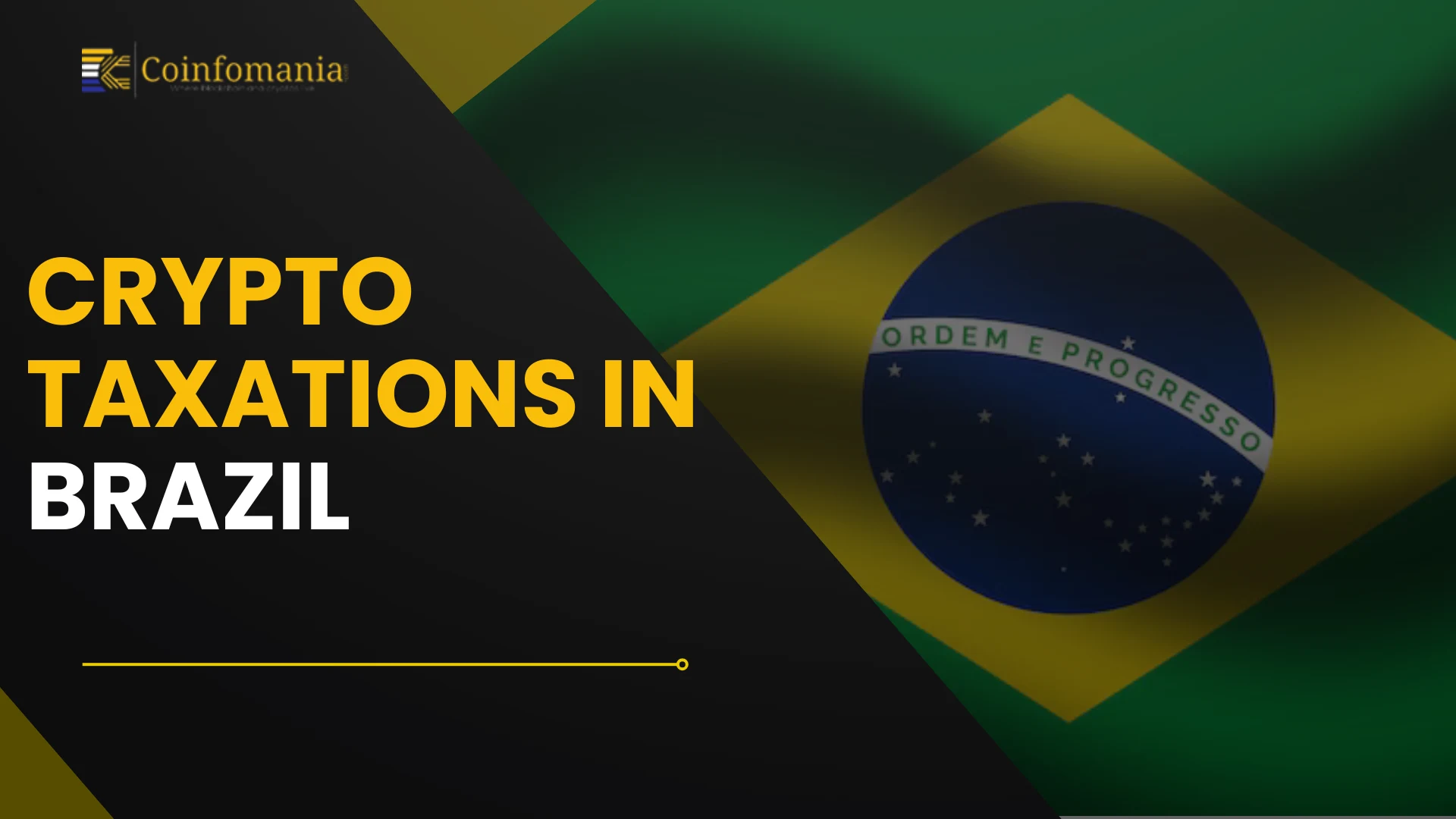Crypto Taxation in Brazil: A Complete Guide
0
0

In Brazil, cryptocurrency is booming, with 1.9 million people and 65,000 companies trading ₱19.6 billion in 2024, prompting strict tax rules. It’s a quick way to send or grow money. The Receita Federal (RFB) treats crypto as a taxable asset, watching all reportable trades. Knowing tax rules is vital for the population to stay legal in 2025 and beyond.
Tax Authorities & Regulations
In Brazil, the Federal Revenue Service (RFB) runs the show for crypto taxes, backed by the Ministry of Finance. Laws like No. 14,596/2023 and rules from 2025 call crypto “movable goods,” not money, building on updates since 2019. The Central Bank of Brazil (BCB) and RFB team up to watch trades, while new 2025 rules push exchanges to report deals. Taxes kick in when people profit or earn from crypto, and the RFB uses smart tech to track every move on the blockchain.
Types of Crypto Taxes in Brazil
Brazil taxes crypto, based on use cases. Capital Gains Tax (CGT) applies to profits from sales over ₱35,000 monthly. Income Tax hits earnings from mining, staking, airdrops, or crypto pay, treated as regular income. Value-Added Tax (VAT) skips crypto trades so far, but businesses might see it in 2025. Wealth or inheritance taxes don’t target crypto yet.
Tax Rates & Brackets
Brazil’s crypto tax rates are clear. CGT starts at 15% for profits up to ₱5 million, rising to 22.5% above ₱30 million, if sales exceed ₱35,000 monthly. Income tax ranges from 7.5% (up to ₱22,847 yearly) to 27.5% (over ₱55,976), with businesses at 15% to 25%. Sales under ₱35,000 monthly dodge CGT, but income tax may apply.
Crypto Transactions & Tax Treatment
In Brazil, buying crypto with reais is tax-free, but selling for profit over ₱35,000 monthly triggers CGT. Mining or staking rewards face income tax when received. Crypto pay is taxed as income. Swapping crypto incurs CGT if profits top ₱35,000. DeFi earnings get income tax. NFT sales hit CGT if monthly gains exceed ₱35,000.
Crypto Tax Reporting & Compliance
Brazilians must report crypto earnings to the RFB yearly via their income tax return, due by April’s last working day, like April 30, 2025, for 2024. They use the eCac portal to list trades with dates, amounts, and reais values from apps like Binance Brazil. Exchanges report deals over ₱30,000 monthly, and assets above ₱5,000 need yearly reporting. Missing deadlines risks fines from ₱100 to ₱1,500 or 1.5% to 3% of trade value, with jail possible for big evaders.
Tax Deductions & Exemptions
Lowering crypto taxes in Brazil is hard. Losses don’t cut profits unless sales stay under ₱35,000 monthly, avoiding CGT. Businesses might deduct mining costs from income tax, not CGT. Small sales below ₱35,000 monthly skip tax, and assets under ₱5,000 don’t need reporting, but no special crypto relief exists in 2025.
Enforcement & Penalties for Non-Compliance
In 2025, the RFB uses blockchain tools and AI to track crypto trades, with 19 exchanges like Mercado Bitcoin reporting big deals. Tax skippers face fines of ₱100 to ₱1,500 for individuals or ₱1,500 to 3% of trade value for firms, plus 20% yearly interest. Big cheats risk jail, aided by global tracking, though peer trades slip by. Law 14,754/2023 adds a 15% tax on foreign earnings over ₱6,000.
Future of Crypto Taxation in Brazil
Crypto taxes in Brazil might shift after 2025. The RFB considers taxing all swaps or raising rates, following global trends. President Lula’s team supports growth with safety, possibly adding startup perks if blockchain jobs rise. The 15% foreign earnings tax might hit 22.5% by 2026, favoring local platforms, balancing strict taxes with a lively market.
Conclusion
In Brazil, crypto taxes involve a 15% to 22.5% capital gains tax on big profits, income tax on earnings, and strict reporting, all overseen by the Receita Federal (RFB). The population must track their crypto trades and file by April’s end to steer clear of heavy fines or jail. With 2025 rules tightening, consulting a tax expert can guide people to handle their crypto smartly and avoid issues.
Frequently Asked Questions (FAQs)
1. How do Brazilians report crypto profits in 2025?
In Brazil, traders must tell the Federal Revenue Service (RFB) about crypto earnings via their annual tax return, due by the last working day, like April 30, 2025. They list trades with dates, amounts, and real values from apps like Mercado Bitcoin if sales top ₱35,000 monthly.
2. What happens if someone skips paying crypto taxes in Brazil?
If people in Brazil skip crypto taxes in 2025, the RFB fines individuals ₱100 to ₱1,500 or businesses up to 3% of trade value, plus 20% yearly interest. Serious evaders risk jail.
3. Are small crypto sales tax-free in Brazil?
In 2025, if someone in Brazil keeps their crypto sales below ₱35,000 a month, they will avoid paying capital gains tax. However, income from mining or staking still faces regular income tax unless their total yearly earnings fall below ₱5,000, which exempts them from reporting.
4. Why is the RFB using AI for crypto taxes in 2025?
In 2025, the RFB uses AI and blockchain tools to better track crypto trades and catch evaders. With 19 exchanges reporting deals over ₱30,000 monthly, this tech boosts tax collection as crypto grows.
5. Can Brazilians lower taxes with crypto losses?
In Brazil, people cannot cut capital gains tax with crypto losses in 2025 unless monthly sales are below ₱35,000, avoiding CGT. Businesses might reduce income tax with mining costs, but regular traders get little relief.
The post Crypto Taxation in Brazil: A Complete Guide appeared first on Coinfomania.
0
0
 Manage all your crypto, NFT and DeFi from one place
Manage all your crypto, NFT and DeFi from one placeSecurely connect the portfolio you’re using to start.





